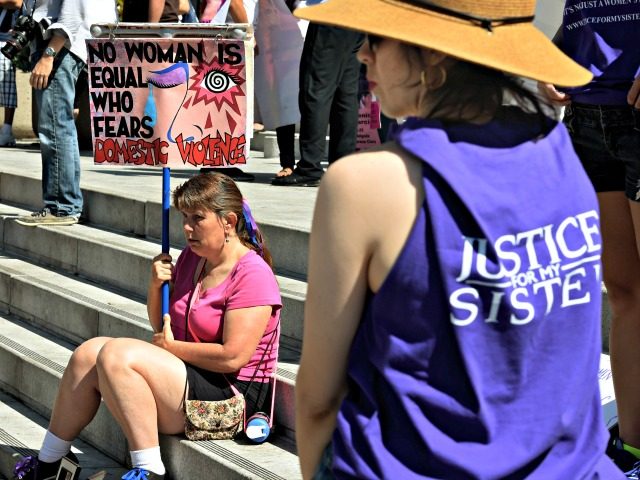Domestic violence across the five boroughs of New York City soared at the peak of the state’s coronavirus lockdown, recently unveiled data reportedly show, confirming predictions from experts, assertions from law enforcement officials, and echoing global trends.
A New York Post article published late on Sunday and reprinted by other news outlets this week revealed:
When the pandemic first laid siege, experts predicted that mandatory lockdowns and soaring unemployment would cause a rise in household abuse, and figures now bear them out — with domestic violence reports at some agencies doubling and even tripling in the past few months.
The Post’s findings are consistent with a recent United Nations report highlighting skyrocketing domestic violence incidents amid the coronavirus-linked lockdowns across the world.
Despite the problems linked to the shutdowns, some so-called experts and former Obama officials like Andy Slavitt are calling for a second round.
According to the non-profit Met Council’s family violence program, the number of new domestic abuse cases in NYC had more than doubled by May, from an average of about 70 cases per month before the lockdown to 135 in April, 145 in May, and 146 in June.
“We’ve never been busier,” Nechama Bakst, the senior director of the Met Council program, lamented to the Post. “We have seen people who never experienced violence starting to experience violence, and people who have experienced violence experience worse violence.”
“We see more choking, more sexual violence, kind of much more intense and serious acts of crime,” the director added, suggesting that domestic abuse can be deadly.
California, the most populous state in America, became the first state to implement a stay-at-home order on March 19, with the vast majority of states following suit with some variation of a lockdown decree in the weeks ahead.
New York implemented a stay-at-home mandate a day after California. Ultimately, governors and city leaders across America implemented measures curtailing non-essential activities that impacted more than 95 percent of U.S. residents.
NYC’s Sanctuary for Families (SFF), which also works with domestic violence survivors, also reported a dramatic increase in calls to its helpline amid the lockdown, consistent with the situation in other countries as reported by the U.N.
“In May, the group received 206 calls, compared to 102 for the month the year before. In June, calls more than tripled, with 259 compared to 73 last year,” the New York Post noted.
Dorchen Leidholdt, the director of SFF’s Legal Center, told the newspaper:
Domestic violence is fundamentally about power and control. The coronavirus pandemic gave abusers a powerful tool of control because their victims were in much closer proximity to them, 24/7 in many cases, and had less access to sources of support and assistance.
Echoing the situation across the world as reported by the U.N., the high unemployment linked to the pandemic has exacerbated the domestic violence problem “because abusers are more physically violent — and likely to kill — when they’re out of work,” the Post learned from experts.
“It was a twin tsunami,” Leidholdt declared. “On the one hand, abusers were unemployed, angry, and more abusive than ever with more access to their victims than ever. … And then, victims were more economically dependent than ever before.”
The National Institutes of Health (NIH) and other experts have warned that the lockdowns, namely the associated depression, anxiety, isolation, and drug use, have fueled lethal mental health issues like suicides and overdoses, as well as other potentially deadly problems like domestic violence.
Law enforcement officials told NBC News in April that reports of domestic abuse in March had increased in many U.S. cities amid the lockdown.
Early this month, the U.N. reported that domestic violence had soared globally during the lockdown, describing the potentially deadly spike as “shadow pandemic” alongside the already lethal COVID-19, the coronavirus disease.
The U.N. noted:
Emerging evidence shows that since the outbreak of COVID-19, reports of violence against women have increased in countries where ‘stay at home’ measures are in place to curb the spread of the virus. Confined living conditions and tensions generated by significant security, health, and money worries are exacerbating experiences of violence that already constituted a serious gendered social and public health problem.
“With more than half of the world’s population under lockdown, domestic violence reports in particular spiked during the first weeks of the pandemic outbreak,” the international body added.

COMMENTS
Please let us know if you're having issues with commenting.